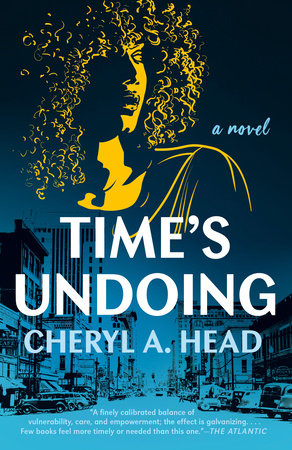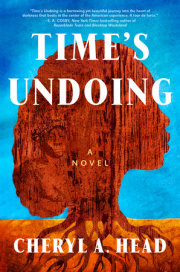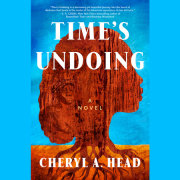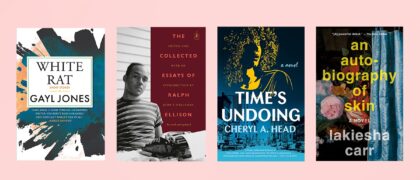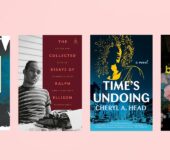Prologue
1929
Four hours ‘til dawn. The single streetlamp at the alleyway splays veiled illumination on the wet cobblestone. The rumble and squeak of streetcars ended two hours ago, and the in-a-hurry-owner of the diner hauls out the last of the garbage which tumbles onto the slick red bricks as he slams the door.
Cress lifts the collar of his tight-fitting jacket against curly brown hair. Alert. Smoking. Shifting from one leg to the other. Leaning into the shadows every time he hears loud voices from the street.
I can’t feel the rain nor smell it, but I sense its fragrance mixed with the relentless forsythia creeping through every patch of dirt. Anna Kate often remarked that the flowers are her favorite part of living in Birmingham.
A car engine’s hum grows louder. Cress melts into the darkness when the blue sedan eases forward and idles under the lamp. The sight of it passes a shiver my body doesn’t register. Cress steps forward and drops his smoke, grinding the butt under his boot. He shoves both hands deep into the pockets of his dungarees.
The broad-shouldered detective gets out of the car, moves to the front bumper and stops. His hat cocked back. He stares at Cress in the alley then swivels his head to take in his surroundings. He nonchalantly swipes a hand down the breast of his coat.
That’s where he keeps his revolver. Cress waits. No longer fidgeting. Squaring his body. He lifts his hands from his pockets and leaves them dangling at his thighs. Finally the big man walks toward him.
“You’ve been asking for me, boy?”
“Yeah. I owe you money. I got it here,” Cress slides a hand into his jacket.
The man tenses.
Cress extends a palm.
Do these two know each other? The detective closes the gap between them. He’s at least four inches taller but when he draws close, Cress grabs his coat sleeve yanking the big man forward. The guy slips, but doesn’t fall so Cress hits him in the face with his fist—three times—like a sledge hammer on a slab of concrete. The man sinks fumbling for his inside pocket. Cress thrashes him again and again while the struggling detective claws at his assailant’s legs and arms trying to right himself. Cress slides and pivots like a welterweight but his opponent’s size and strength gives him an advantage and Cress loses his footing. Now they’re kneeling face-to-face on the wet pavement. The big man snatches Cress by the hair but he’s not expecting the headbutt. Nor the punch to his solar plexus.
For a split second the fight pauses. The two stare at each other with gaping mouths and bared teeth.
When the detective grabs at his coat I think he’s after the gun, but his hand comes away covered in blood. He’s been knifed. Cress thrusts the blade two more times until the man slumps over.
This man-to-man battle has been quiet. Neither letting out more than a grunt. Cress lifts to his feet, rubbing at his scalp, looking around. He stares at the body then aims his boot for a rib-shattering kick.
“That’s for my sister,” he says then leans over to wipe the knife on the man’s overcoat. Cress turns away, hurrying towards the opposite end of the alley. The glow of a match spirals then extinguishes in a puddle.
The detective lays unmoving on the alley’s surface. His left arm stretching to escape. His legs mixing with spilled garbage and soggy cardboard boxes.
Chapter One
The Decision
1929 It’s quitting time and a group of my coworkers are in conversation in the millwork’s parking lot. One casually leans against my brand new Franklin Victoria Sedan. I take offense.
“Get off my car, Arthur. I spent a lot of time on that wax job.”
“Boy, nobody’s bothering your damn car. You think you’re all big and bad just ‘cause you got this Franklin, but I ain’t studyin’ you.”
It’s been eighty plus degrees all day and the heat has me on edge. I consider Arthur for a moment. He’s a warehouse laborer. One of those redbone dudes who thinks his good hair is his ticket to success.
“Maybe
you could buy a new car,” I spit out, “if you stop spending your money on liquor, and cockfights.”
I regret the nagging-wife words as soon as they escape my mouth. I got no business telling another man how to spend his money. Arthur raises the stakes.
“I tell you one thing, Harrington, a fine woman like Anna Kate wouldn’t even
think of marrying a blue-black fool like you if you wasn’t driving this new car.”
The gathered men whoop and holler at his retort. Hair tingles on my arms and the back of my neck. All my life I’ve tried to make up for my dark complexion. My expensive clothes, new car, light-skinned wife, and skills as a carpenter are proof I’m as good, or better, than any other man. People have told me to my face that I’m cocky. Shit, I’m twenty-eight years old, and nobody’s lackey. I ain’t looking for trouble but ain’t running away from it either, and on this sticky Florida evening I’m not in the mood to let the comment go unanswered—especially when Arthur’s defiant stare becomes a mocking smirk.
Without another word, my knuckles sink into the folds of his belly and the smile falls from his face as breath escapes his body. He’s strong and taller so he rocks back but doesn’t drop.
“You motherfucker,” he yells and swings a fist glancing my chin.
For what seems like a minute we exchange blows. Our scuffle finally brings us to the ground where we wrestle and curse until the foreman pulls us apart. He’s a smart white man, six-four, two-hundred twenty pounds and hired because he knows how to handle the temperaments of laborers in a factory environment.
Both of us should have been fired, but only Arthur is let go. My carpentry skills have saved me. The grumbling about favoritism is growing so I’m offered an out-of-state assignment—work on the mansion of a Birmingham, Alabama millionaire. I don’t accept the job right away because Anna Kate doesn’t want to be separated from her family, and to tell the truth I don’t want to leave St. Petersburg either. People know me here and I don’t want to start out in a new city where I’ll be just another colored man in the Deep South.
Two weeks after the confrontation at the mill, I’m involved in another incident. This time with a white man in downtown St. Pete. The guy demands I move my car so he doesn’t have to park next to a rain puddle. He’s drunk, and wants to impress the woman in his passenger seat. He shouts the worst insults, then gets out of his vehicle to challenge me. Instead of backing down, I retrieve a polishing rag from under my seat and begin buffing the front bumper of the Franklin. When he spits on my car, I knock him to the pavement. The screams of his lady passenger cause several people to look our way. I’m sure one of them will call the police. I jump behind the wheel of my car and drive away.
The next day I’m on my way out of town. Word has already gotten to me that the police are asking around town about a Negro who drives a fancy car. I have to temporarily abandon my nineteen-year-old, pregnant wife and young daughter in Florida. I take the carpentry job in Alabama because it seems, for now, the best thing to do. I sure hope trouble won’t follow me to Birmingham.
Chapter Two
2019 It’s my fifth funeral in six months and I’m trying not to succumb to the despair I feel. Another Black man. This time in his early thirties. He’d been returning to his university teaching position after an impromptu lunch downtown with his fiancé who works at Quicken Loan. Walking fast because he was late for class, and texting the department secretary, he was unaware a patrol car had pulled to the sidewalk behind him. When the siren blared, Phillip Carter turned to look but kept walking. From there things escalated.
He dropped his backpack as ordered, but refused to lean spread-eagle against the parking lot fence. A second officer approached with his gun drawn. Carter lifted the lanyard around his neck displaying his Wayne State University faculty ID. “I’m a professor,” he pleaded. “I’m on my way to teach a class.” The first cop responded with: “What’s in the bag?” Carter crouched to retrieve the bundle of graded papers in his backpack. That’s when both policemen fired their weapons.
Those are the details. I’m here, against the back wall of the church, to find something beyond the facts to engage our newspaper readers in the human elements of this story. The viewing of the body is still underway. I watch the somber crowd and make notes. I spot Carter’s fiancée in the first row flanked by her parents. I’ve seen her on the local news—grieving, poised, demanding justice. The shooting has prompted a half-dozen protests in Detroit along with campus demonstrations in Ann Arbor and East Lansing. The firing of both officers by the Chief of Police hasn’t appeased anybody.
I’ve briefly locked eyes a couple of times with an old Black man standing on the other side of the church. He’s dressed a bit too stylish for a funeral, in an out-of-date suit with a polka-dot bow tie. He’s coming my way.
“You’re a reporter?” he asks.
“For the Detroit Free Press.”
“Nice to meet you,” he offers a handshake. Now that he’s closer I notice a piece of stained wood hanging from a leather thread around his neck. It’s a small whistle.
“Yes sir. Same here,” I reply grasping his hand.
He stares at the casket in the front of the sanctuary.
“Why do they keep killing us?”
“I don’t know.”
“We’re running out of time to make things right. They can put men into Space, but they won’t make space for Black men.”
It’s a great quote, and I flip to a clean page in my notebook to jot it down. Before I can ask the man his full name he moves away to wait in the viewing line. After the funeral service, I search for him but he’s gone.
Chapter Three
A Fresh Start
1929 I’m part of a five-man carpentry crew working on a residential project. We’re creating a grand entryway, foyer and ballroom for a local iron magnate’s mansion. The project involves several more months of work at top pay. It’s the kind of opportunity not many Black men will ever get.
But after two months alone in the so-called Magic City, longing for the regular company of my wife and daughter, I’m making my second trip from St. Pete to Birmingham. I’m bringing them to live with me. Anna Kate’s not all that happy, and it took some convincing for her to agree to leave her people, but the arrangement will work out pretty well for me.
Travel in our Franklin is pleasant enough. Better than the cramped seats in the rear of a bus, and cooler than the sweltering train cars, but the roads are crude and chocked with holes. I’m lucky when there’s gravel or sand filling in the ruts. That’s especially true after we leave the Dixie Highway in Florida. Anna Kate is just over six months along but already big, and prefers to sit in the back with Mae where she has more leg room and can rest her swelling ankles. There is another advantage for her rear seat perch. We’re driving through towns that don’t want to see Negroes after dark, and on the open road I’m a pretty big target for the Klan. So to the casual observer, with my light-skinned wife as passenger, I could pass for a chauffeur.
My biggest worry right this moment is getting Anna Kate and Mae to a secure place for the night. Normally, I could grab a few hours of sleep here and there, but with my family I need decent sleeping accommodations. I’ve arranged with mama’s pastor to stay overnight at a tourist house owned by the local AME church just outside of Macon, Georgia. But first things first, I need to keep my full attention on avoiding the ruts that could break the car’s axle, and the white people who could take a disliking to us.
It’s almost dusk before we reach the tourist house. Thankfully it’s next door to the church where I’m to pick up the key. My carpenter’s eye registers the door as solidly-built pine. I knock a few times before it opens.
“Pastor Swanson?” I ask of the man peering through the crack.
He’s tall, large and bearded. He reminds me of the stained-glass image of John the Baptist at mama’s church. His beefy hand clutches the handle of a lantern and he extends his arm so he can see my face, and I can better see his. But this man with the cautious squint and one hand out of view is no baptizer. At least not with water.
“I’m Jacob. The church custodian. Are you Harrington?”
I nod. He glances over my shoulder toward my car. The church door briefly closes and opens again, the lantern replaced by a single key.
“The house is already open. But lock yourself in at night. We’ve had a few problems round here lately. Goodnight.”
Jacob shuts the door so swiftly my murmured ‘thank you’ is absorbed into the heavy portal. I hear the lock’s tumblers engage.
Anna Kate already has the car door open and I lift her to her feet and grasp her elbow to steady her steps. My other arm is filled with a wriggling Mae who is tired and fussy. I push open the door to the tourist home. We pause a moment, staring into the dark, listening for intruders, critters, and ghosts before stepping inside.
The house has electricity—one of the reasons I chose it—and I search for the wall switch. The single bulb dangling from a cord wrapped in black tape casts more shadows than light, but the modest one-room structure is clean and welcoming. The front room has a threadbare sofa, a cushioned rocking chair, and a side table with a lamp. A creaking oak floor continues from the parlor area to a roomy kitchen on the left. Two wood-framed paper screens separate the common rooms from the sleeping area. There is only one bed, so I make a pallet for Mae. We’re all too tired to care about food, but Anna Kate finds a tin of loose tea in the cupboard. I light and stoke the coal under the single-burner stove, and she puts water in a pot. Even before the water boils Mae is asleep. I’m sprawled in the rocking chair close to sleep myself, but adjust my slumping shoulders when Anna offers a cup of tea with sugar.
I watch her prepare for bed. Washing her face and brushing her hair. She’s a beautiful woman—a girl really—and a good wife.
“Robert, I’m so tired.”
“I know. You go ahead and lie down. I’ll be there shortly.”
It’s only because I had a steady job, and promised to treat Anna Kate gently, that her mother allowed me to marry her youngest daughter. I don’t know if she really loves me, but I adore her. She keeps a clean home and is an attentive mother. In the evenings, after a long day of sweating men, reeking varnish, and clinging sawdust, it lifts my spirits to see her. Even after two years of marriage her fair skin under my dark hands still causes a tremble in my spine.
The warm tea mixes with the heat of my thoughts, and I rise from the rocker to lay with my wife in a strange bed.
Copyright © 2023 by Cheryl A. Head. All rights reserved. No part of this excerpt may be reproduced or reprinted without permission in writing from the publisher.

